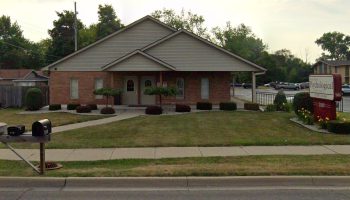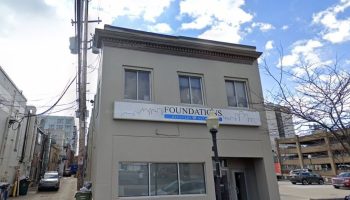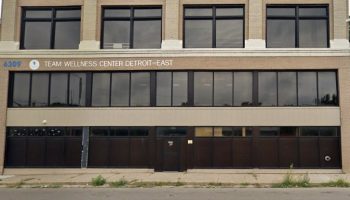About Dawn Farm Spera Recovery Center
Spera Recovery Center is one of Dawn Farm’s substance abuse treatment facilities located in Ann Arbor, Michigan. They offer social detox for adults with a focus on creating a sustainable plan for moving forward. They are LBGTQ+ friendly.
Detox is the first step on the path to recovery. Social detox means that prescription medication is not used for withdrawal. If a patient faces a medical risk during withdrawal, Spera will coordinate with another provider or emergency department.
After intake, Spera counselors will complete an initial assessment and monitor withdrawal from alcohol or other drugs. Together, the client and counselor will develop treatment and recovery plans. This may include inpatient treatment, outpatient treatment, sober housing and case management. These services may be available with Dawn Farm or another community provider.
Their detox program is part of their continuum of care services. It includes participating in daily mutual aid meetings as well as individual and group therapy. Sleeping arrangements are bunk beds in gendered rooms. Trans and non-binary clients choose the sleeping arrangement that is most comfortable for them. Dawn Farm volunteers take care of all the cooking and cleaning for patients in detox.
Dawn Farm is a non-profit organization and is CARF-accredited. They rely on community support to run programs and offer some free spots. They also offer payment assistance. Contact your provider to verify coverage because out of network benefits can vary.
Operation Hours
- Monday Open 24 hours
- Tuesday Open 24 hours
- Wednesday Open 24 hours
- Thursday Open 24 hours
- Friday Open 24 hours
- Saturday Open 24 hours
- Sunday Open 24 hours
Levels of Care
-
Inpatient
Inpatient and residential programs provide round-the-clock medical and emotional support as you live at the treatment facility. This level of care may be recommended if you have severe addictions or mental health conditions since it removes outside distractions and allows you to focus solely on therapy.
-
Aftercare
Aftercare programs provide ongoing support after you complete a rehab program. They may include several components to help you maintain sobriety including therapy, community support groups and relapse prevention strategies. This gives you a network of resources as you reintegrate into your daily life.
-
Outpatient
In outpatient therapy, you’ll attend therapy sessions several times each week while living at home. This is ideal if you have a strong support system and a lower risk of relapse. Outpatient treatment offers flexibility to maintain work, school or family obligations.
-
PHP
Partial hospitalization programs provide comprehensive treatment in a structured setting during the day but allow you to return home at night. These programs offer a balance of inpatient and outpatient rehab and provide intensive support without full time residency.
Detox Service Setting
-
Inpatient Detox
Inpatient detox occurs in a dedicated treatment facility. You’ll live there around the clock and receive intensive medical support and supervision to help manage your withdrawal symptoms. It is suitable for individuals with moderate to severe addictions as it ensures a stable detox environment.
-
Outpatient Detox
Outpatient detox gives you access to medically supervised withdrawal services while still allowing you to live at home. You’ll attend a clinic for treatment and monitoring. This flexible option is suitable for those with mild to moderate withdrawal symptoms who have strong support systems.
-
Hospital Detox
Hospital detoxification allows you to withdraw from drugs or alcohol in a hospital setting. It’s ideal for people with severe withdrawal symptoms or complex medical needs. You’ll receive constant monitoring, emergency care if needed and FDA approved prescription medications.
-
MAT
Medication assisted treatment combines medication and counseling to manage withdrawal and reduce cravings for opioid and alcohol addiction. Medications may include methadone, buprenorphine or naltrexone. MAT is tailored to your needs so you can actively participate in your treatment journey.
Programs
-
Adult (18+)
Adult programs address the substance use and life challenges specific to adults. Therapists can deliver sessions in individual, group and family settings. Services often include job support and life skills training in a structured environment.
-
Young Adult (18 - 25)
Young adult programs are designed for individuals who are transitioning into adulthood. Topics of discussion typically include identity, independence and peer relationships. Providers may also offer life skills training and career support.
-
Women
Women's programs offer a safe and supportive space to focus on gender specific issues such as trauma, family roles and mental health conditions. Therapists tailor the sessions to address women's needs and foster empowerment in a healing and nurturing environment.
-
Men
Men's programs address substance use while also considering the social pressures, family roles and mental health concerns that are specific to men. You’ll learn healthy coping mechanisms as you build emotional resilience and develop communication skills.
-
LGBTQ Friendly
LGBTQ friendly programs create an inclusive and affirming space for recovery. Treatment is sensitive to issues like discrimination and stigma. You’ll receive support and therapy that respects and acknowledges your unique experiences.
-
Military / Veterans
Military and veteran programs offer specialized support for clients who served in the armed services. Programs focus on reintegration and healing within a structured and supportive environment that acknowledges the unique struggles of military life.
Accreditations
-
 CARF
CARF
Medications Offered
-
Methadone
-
Buprenorphine
-
Naltrexone (Vivitrol)
Contact
502 West Huron Street
Ann Arbor, MI 48103





